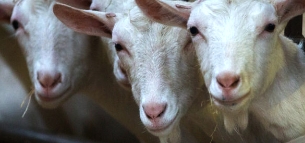Dairy Goats Standards
Vermin Control Version 5.0 (modified)
Click to view
Key – Those standards which have greater significance (all other standards are normal)
Recommendation – Those which do not affect certification
New – A completely new standard which the member must now adhere to
Revised – A standard that has changed and requires the member to take some different or additional action to before
Upgraded – The standard has been upgraded to a Key standard or from a Recommendation to a full standard
Appendix – Referenced in ‘How you will be measured’. Indicates that additional information is provided in the Appendices, which are available at the end of each section.
DG.VC.1 Key
There must be effective control of vermin
How you will be measured
DG.VC.1.a
DG.VC.1.b
DG.VC.1.c
Site surveys
DG.VC.2
Toxic bait must be used responsibly
How you will be measured
DG.VC.2.a
DG.VC.2.b
DG.VC.2.c
DG.VC.2.d
DG.VC.2.e
DG.VC.2.f
DG.VC.2.g
DG.VC.2.h
- Environmental Risk Assessment
- Bait Plan
- COSHH assessment (where applicable)
DG.VC.3
Systems must be in place to control vermin in milk production/storage areas
How you will be measured
DG.VC.3.a
DG.VC.3.b
DG.VC.3.c
DG.VC.3.d
DG.VC.3.e
- The Campaign for Responsible Rodenticide Use Code is published on: www.thinkwildlife.org/crru-code
- HSE step-by-step guide to COSHH assessment: https://www.hse.gov.uk/pubns/books/hsg97.htm
More Standards
VC.1.b – A site survey is a record of every inspection and/or survey undertaken to look for signs of rodent activity and/or environmental management requirements.
VC.2 – Permanent baiting is the application of a rodenticide product when no active infestation is present. Permanent baiting is strictly limited to sites with a high potential for reinvasion when other methods of control have proven insufficient and can only be carried out by professional users and only with products authorised for this use.
